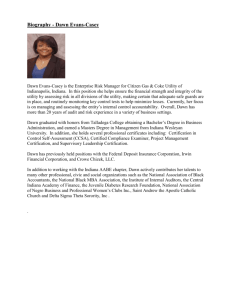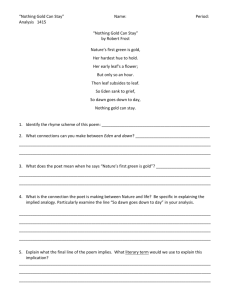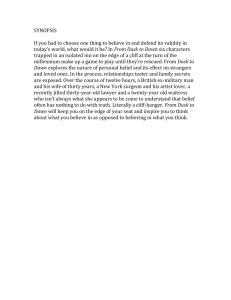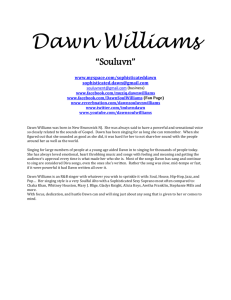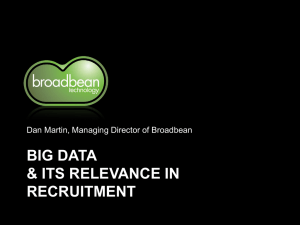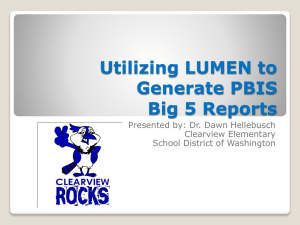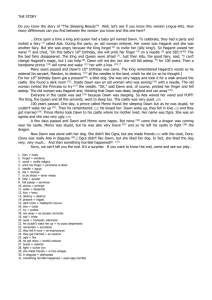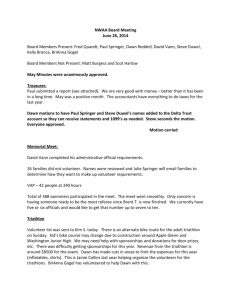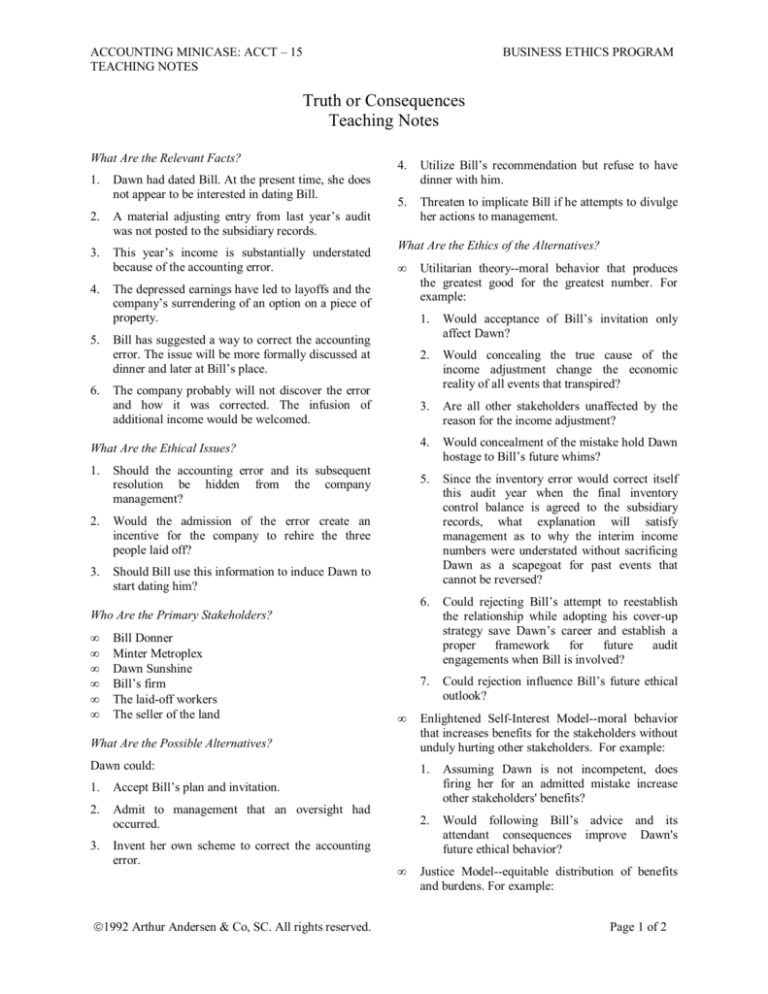
ACCOUNTING MINICASE: ACCT – 15
TEACHING NOTES
BUSINESS ETHICS PROGRAM
Truth or Consequences
Teaching Notes
What Are the Relevant Facts?
1.
Dawn had dated Bill. At the present time, she does
not appear to be interested in dating Bill.
2.
A material adjusting entry from last year’s audit
was not posted to the subsidiary records.
3.
This year’s income is substantially understated
because of the accounting error.
4.
5.
6.
4.
Utilize Bill’s recommendation but refuse to have
dinner with him.
5.
Threaten to implicate Bill if he attempts to divulge
her actions to management.
What Are the Ethics of the Alternatives?
•
The depressed earnings have led to layoffs and the
company’s surrendering of an option on a piece of
property.
Utilitarian theory--moral behavior that produces
the greatest good for the greatest number. For
example:
1.
Bill has suggested a way to correct the accounting
error. The issue will be more formally discussed at
dinner and later at Bill’s place.
Would acceptance of Bill’s invitation only
affect Dawn?
2.
The company probably will not discover the error
and how it was corrected. The infusion of
additional income would be welcomed.
Would concealing the true cause of the
income adjustment change the economic
reality of all events that transpired?
3.
Are all other stakeholders unaffected by the
reason for the income adjustment?
4.
Would concealment of the mistake hold Dawn
hostage to Bill’s future whims?
5.
Since the inventory error would correct itself
this audit year when the final inventory
control balance is agreed to the subsidiary
records, what explanation will satisfy
management as to why the interim income
numbers were understated without sacrificing
Dawn as a scapegoat for past events that
cannot be reversed?
6.
Could rejecting Bill’s attempt to reestablish
the relationship while adopting his cover-up
strategy save Dawn’s career and establish a
proper
framework
for
future
audit
engagements when Bill is involved?
7.
Could rejection influence Bill’s future ethical
outlook?
What Are the Ethical Issues?
1.
Should the accounting error and its subsequent
resolution be hidden from the company
management?
2.
Would the admission of the error create an
incentive for the company to rehire the three
people laid off?
3.
Should Bill use this information to induce Dawn to
start dating him?
Who Are the Primary Stakeholders?
•
•
•
•
•
•
Bill Donner
Minter Metroplex
Dawn Sunshine
Bill’s firm
The laid-off workers
The seller of the land
•
What Are the Possible Alternatives?
Enlightened Self-Interest Model--moral behavior
that increases benefits for the stakeholders without
unduly hurting other stakeholders. For example:
Dawn could:
1.
Assuming Dawn is not incompetent, does
firing her for an admitted mistake increase
other stakeholders' benefits?
2.
Would following Bill’s advice and its
attendant consequences improve Dawn's
future ethical behavior?
1.
Accept Bill’s plan and invitation.
2.
Admit to management that an oversight had
occurred.
3.
Invent her own scheme to correct the accounting
error.
1992 Arthur Andersen & Co, SC. All rights reserved.
•
Justice Model--equitable distribution of benefits
and burdens. For example:
Page 1 of 2
ACCOUNTING MINICASE: ACCT – 15
TEACHING NOTES
1.
Are Bill and Dawn the only stakeholders who
would benefit from the suggested scheme?
2.
Should Dawn escape the consequences of her
mistake?
3.
Which stakeholders carry the greatest burden
if Dawn follows Bill’s suggestion?
What Are the Practical Constraints?
1.
If Dawn rejects Bill’s suggestion and he reports
her mistake, the consequences of her oversight are
serious enough to justify her firing.
2.
If Dawn attempts to use Bill’s strategy but rejects
his offer for dinner and threatens to implicate him
if he reports her mistake, she could still lose.
3.
Management might be skeptical of her attempt to
embroil the auditor.
1992 Arthur Andersen & Co, SC. All rights reserved.
BUSINESS ETHICS PROGRAM
4.
There is still the matter of lost wages and the
$20,000 option expense that someone must take
responsibility for if the true reasons for the
correction of income surface.
5.
Bill’s invitation may be in good faith--an
expression of concern for her predicament.
What Actions Should Be Taken?
1.
What action should Dawn take?
2.
What alternatives would you choose if you were in
her position? Why would you make that choice?
3.
What ethical theories (utilitarian, enlightened
self-interest, or justice) make the most sense to
you as they relate to this situation?
Page 2 of 2

